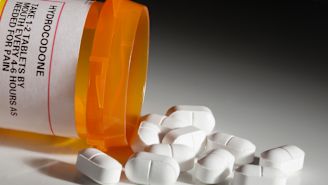Updated on February 16, 2024.
For someone who is experiencing drug or alcohol addiction, the real challenge is staying clean. In fact, the National Institute on Drug Abuse estimates that between 40 and 60 percent of people who were addicted to drugs relapse. It’s not solely a matter of willpower that determines whether someone will go back to substance abuse. Addiction is a disease that changes the brain's structure and how it works.
Drugs of abuse stimulate the brain’s reward system by triggering the release of a chemical called dopamine. Dopamine is associated with reward. It starts working on the brain and makes you feel good when you see something you want. Even the brain of someone in recovery will start making dopamine if the person sees something that reminds them of their drug of choice. Those things are called triggers and they can start someone back toward drug abuse.
A changing brain
Addiction takes advantage of one of the brain’s most important protective features: neuroplasticity. Neuroplasticity is the ability of the brain to change itself in the event of injury or environmental changes, like a brain injury or a stroke.
In addiction, plasticity shows up in two forms. The first is tolerance and dependence. This is when the body and brain come to rely on the drug. Withdrawal symptoms show up when someone stops taking the drug.
The second form of neuroplasticity is compulsive seeking of the drug. When someone takes a drug, the brain’s reward system is activated. Soon, the brain makes the connection between pleasure and anything associated with the drug. These are triggers. The reward system gets activated in the presence of those triggers and those associations in the brain are either long-lasting or permanent. Dependence (and the desire to avoid withdrawals) and the association of pleasure with triggers make drugs very hard to quit.
Stages of relapse
Addiction specialist Steven Melemis, MD, PhD, writing in the Yale Journal of Biology and Medicine in 2015, outlined three stages of relapse:
The first is emotional relapse. A person isn’t even thinking about using drugs again, but their emotions and behavior are setting themselves up to do just that. They may stop going to support meetings and decline to share when they do go. They may focus on other people and their flaws or isolate themselves and neglect basic self-care, such as eating healthy and getting enough sleep. Self-care extends to their emotional life as well—being kind to themselves and making time to enjoy activities not related to drug use. This stage can start weeks or even months before the person goes back to using drugs.
Next comes the mental relapse stage, when a person struggles with the choice of using or staying clean. The person is thinking about using drugs again and experiencing cravings. They are remembering the people, places, and things associated with the drug of choice, and trying to justify when drug use might be acceptable, such as on a trip or away from home. It’s important to know that occasional thoughts of using are a normal part of the recovery process. It’s when the thoughts become more frequent that the person is at greater risk of relapsing.
Finally, physical relapse happens. Many times, the relapse is one of opportunity, where the user knows they won’t get caught. But just one hit of a drug can start the person back down the road to regular, uncontrolled substance abuse.
How to help
Your support is critical in a loved one’s recovery process. Research suggests social support increases the production of a brain chemical called oxytocin, which can help increase a person’s will to fight addiction. Oxytocin is also called the “love hormone” and is important in social interactions and parents bonding with their babies. It can also reduce the pleasure of drugs and the feelings of stress, both of which can lead people who are in recovery to start using again. While being supportive is of great importance, just as important is that your loved one perceives that they have your support.
The Hazelden Betty Ford Foundation, a nonprofit treatment center, suggests helping your loved one live a sobriety-based lifestyle. Tactics include:
- Encouraging your loved one to embrace treatment.
- Being honest with yourself about the severity of your friend or family member’s addiction.
- Stop enabling your loved one by allowing him or her to continue to use without consequence.
- Helping your loved one avoid triggers by recognizing situations that might make your loved one want to use again.
- Taking care of yourself and your family by joining a family support group.
If your loved one does start using again, you should understand that treatment is not a cure and people who were substance abusers in the past are at risk for a relapse. Relapse is a common (though not universal) part of the recovery process. Keep in mind that your friend or family member has successfully quit substance abuse in the past and has learned some of the skills they need to recover. Your loved one should start treatment again right away, thought a different treatment approach may be needed.







